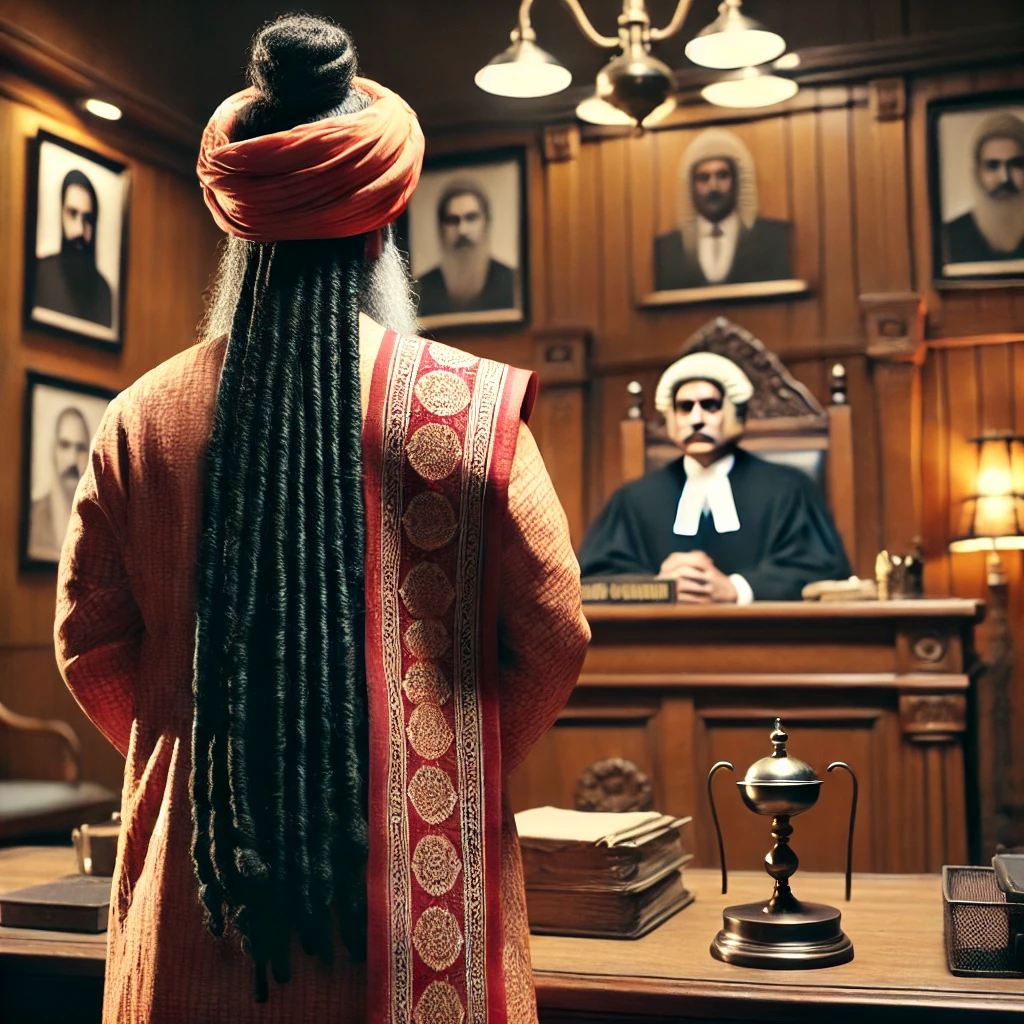The recent controversy surrounding Sadhguru Jaggi Vasudev’s Isha Foundation has once again cast the spotlight on the role of judicial activism and its persistent scrutiny of Hindu religious organizations. Following an order by the Madras High Court, the Isha Foundation was subjected to police action based on concerns regarding its religious practices. The Supreme Court intervened, granting a stay on the High Court’s order, emphasizing the right to religious freedom. This case, however, raises a broader issue: Why are Hindu institutions seemingly the recurrent focus of judicial scrutiny in a secular country that constitutionally guarantees the freedom of religion?
Background : The Isha Foundation Controversy
The controversy erupted when the Madras High Court ordered an investigation into certain practices promoted by the Isha Foundation, including encouraging women to embrace lives of asceticism. One of the judges questioned Sadhguru’s motives, highlighting that, while his own daughter is married, he has encouraged other women to forgo such a life path. While raising concerns over potential exploitation of religious sentiments, the High Court’s order touched off a debate on religious freedoms and personal choice. The Supreme Court’s stay order, invoking Article 25 of the Constitution, underscored that, as a religious organization, Isha Foundation is protected under fundamental rights.
The Question of Judicial Scrutiny of Hindu Institutions
This is not an isolated incident; Hindu institutions have frequently found themselves at the receiving end of judicial scrutiny and activism. Temples and spiritual organizations are often investigated and subjected to standards of transparency and scrutiny that many feel are not equally applied to other religious organizations. This pattern of selective judicial intervention has led many to question if the scales of justice are balanced when it comes to religious freedom in India.
While judicial activism can be crucial in protecting individual rights, it risks appearing partial when it focuses disproportionately on Hindu institutions. Critics argue that similar controversies involving organizations of other faiths seldom attract comparable levels of scrutiny. The Article 25 of the Indian Constitution guarantees all citizens the “right to freely profess, practice, and propagate” their religion, making it essential for the judiciary to ensure equal treatment for all religious institutions.
Democracy and Equal Treatment for All Faiths
India’s secular democracy thrives on the principle that all religions are equal under the law. Judicial activism, if perceived as selectively targeting Hindu institutions, risks undermining this ideal and alienating a significant portion of the population. Religious practices and beliefs are deeply personal, and the state’s role, as outlined in the Constitution, is not to interfere but to facilitate the safe and peaceful exercise of these practices.
To maintain the delicate balance that democracy demands, it is essential for the judiciary to exercise restraint and consistency in its scrutiny of religious institutions. Repeated interventions targeting specific groups may unintentionally signal that some religions are less entitled to practice freely than others, eroding public trust in the impartiality of the judiciary.
Judicial Intervention Vs Personal Choice
At the heart of the Isha Foundation case is the issue of personal choice. Every individual has the right to decide their life path, including the choice to pursue asceticism, a path traditionally respected in Hindu culture. When the court questions why Sadhguru encourages women to become “hermitesses,” it risks encroaching on the private sphere of personal religious belief.
In a democratic setup, the role of the judiciary is not to evaluate the personal choices of individuals regarding their religious paths but to ensure that such choices are exercised freely without coercion. The court’s critique, particularly concerning Sadhguru’s personal family decisions, ventures into an uncomfortable realm that blurs the lines between judicial authority and personal freedom.
The Path Forward: Fostering True Secularism in Judicial Practice
India’s secular ethos mandates equal treatment of all religions by the state. Selective activism risks alienating religious groups and fostering resentment. Judicial intervention must be exercised with a consistent standard for all religious organizations, regardless of faith. In cases where there is genuine evidence of wrongdoing, investigations and judicial scrutiny are warranted. However, repeatedly singling out Hindu institutions without equivalent investigations into similar organizations of other religions could undermine public confidence in a system meant to be impartial.
In an increasingly diverse India, respect for personal religious beliefs, consistent treatment of religious institutions, and adherence to secular principles are essential for the judiciary to retain its role as an impartial guardian of rights.
Conclusion
The recent Supreme Court stay on the Madras High Court order regarding the Isha Foundation serves as a reminder of the importance of upholding freedom of religion in a balanced manner. While judicial activism plays an essential role in a democratic society, it must ensure impartiality to maintain public trust. As the custodians of justice, courts must recognize that a selective approach in addressing religious practices risks creating divisions rather than fostering unity in a secular nation. Equal treatment of all religious institutions, consistent application of constitutional principles, and respect for personal choice are foundational to sustaining the true spirit of democracy and secularism in India.
9 Oct 2024




